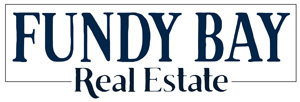Buying a Business
Buying a business can be quite an adventure, but it is a process that requires careful attention. There are some questions you need to ask yourself. Do you want to invest in a business or actually run a business? Do you want the owner to help with operations after the purchase? If you plan to run the business what skills can you provide and what skills do you need to develop?
The following topics and discussions are examples of questions we regularly receive:
Where do I find a business opportunity?
Internet sites, such as realtor.ca, may contain listings and can be a good start. Realtors may have information, and community organizations like the Regional Development Authorities might have lists of local businesses for sale. This CBDC website also contains a list of businesses for sale.
You may prefer to contact a broker. As a buyer, you usually don’t pay the broker, the seller pays this commission. However, there could be costs when you ask a broker to search for business opportunities. Just be CLEAR about the commissions and who pays them.
View the current list of businesses for sale in NB by Fundy Bay Real Estate here.
Are Lawyers and Accountants necessary?
You will likely need assistance from an accountant (CA, CGA or CMA). Accountants help analyse the business, determine a recommended range, and understand the tax implications of the decisions you face. Are you going to purchase assets of a business or will you buy shares of a business? Should you use a holding company or a family trust? An accountant can help with these considerations.
You will need a lawyer. The purchase of a business will require the creation and signing of legal documents. You may also require assistance with estate planning and partnership agreements. It is important that this work is done properly!
What are the steps when buying?
Get the Numbers
The business’ financial performance will be an important piece of information. How much has the business made? How much has the owner made? This information can be found in the financial statements. You and/or your advisers can use this information to determine how much the business is worth. As an owner, you will want to know how much money the business makes. More information about methods to value a business can be found here. When analysed properly, financial statements can tell a great deal of information about a business, and help you identify questions for the seller.
Expressing Interest
When you know how much you are willing to pay, you will develop a Letter of Intent. This letter is signed by you (if you are buying the business personally) or the corporation (if you are buying using a holding or any other company). Typically, the price is mentioned in the Letter of Intent. You can make the purchase “subject to financing.” This means you will not be committed to purchasing the business if you are unable to get financing. You may also make the letter of intent subject to the results of “due diligence” that will be performed by your advisers.
The Letter of Intent may be rejected by the seller, who may then send a counter-offer by revising your Letter of Intent. You may reject this offer and counter – and this dance can go back and forth.
Making an Offer
If you and the seller cannot agree on a price or other terms of the sale, the business may not be right for you… it’s time to look for another opportunity. If you do agree on a price you will need to prepare your financing. Once you have the money to purchase the business you can contact your lawyer to prepare the purchase and sale agreement.
Closing
Once your financing is in place and the purchase and sale papers have been signed, the purchasing process is complete… and now it is time to operate the business!
Original text from: https://www.businessatlantic.ca/en/buying-a-business Business Atlantic, CBDC

